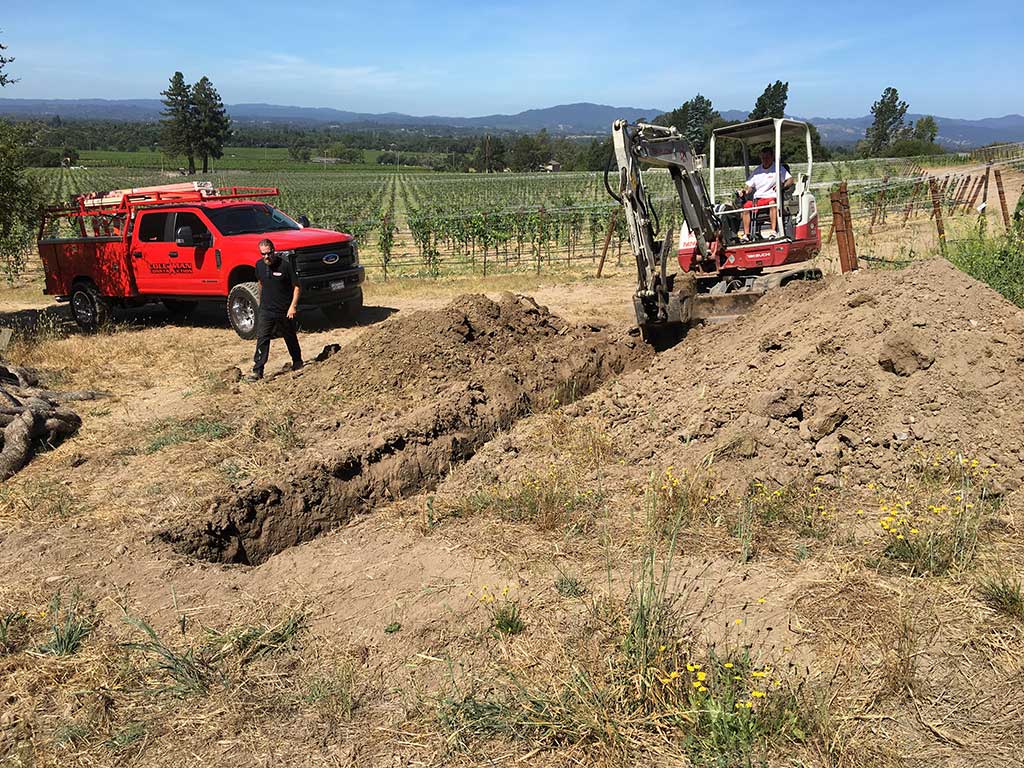
Geotechnical Services
Geotechnical engineering projects typically begin with a review of background information such as previously completed geotechnical engineering and geologic reports, project plans, specifications and other pertinent data. Following the initial office studies a subsurface exploration is performed to assess the underlying site geologic conditions. Soil and bedrock samples are collected and transported to our laboratory for analysis and testing. Laboratory testing is performed to assess the nature and behavior of soils and bedrock. Engineering analysis is then performed to address, for instance, slope stability, liquefaction, soil swell bearing capacity, friction, and/or settlement. Our findings and conclusions are presented in a report indicating, for example, the foundation design, seismic design parameters, slab-on-grade design, retaining wall design parameters, pavement thickness, and/or drainage.
Design Level Geotechnical Investigations
• Single Family Residences
• Roads, Bridges, Tunnels
• Wineries, Tank Pads, Crush Pads
• Utilities, Pipelines, Various Infrastructures
• Schools, Hospitals, Recreational Facilities
• Reservoirs, Ponds, Dams, Treatment Plants
• Commercial and Light Industrial Developments
• Multi-Family Developments, High-Rise Structures
Geotechnical Consultations During Construction
• Drainage Considerations
• Helical Pier Recommendations
• Drilled Pier Depth Recommendations
• Footing Depth Recommendations
Geotechnical Observations and Testing Services During Earthwork and Grading
• Drainage
• Proof-Rolling
• Subgrade, Base Aggregate
• Keyways, Buttresses, Embankments
• Field Density Soil and Aggregate Testing
